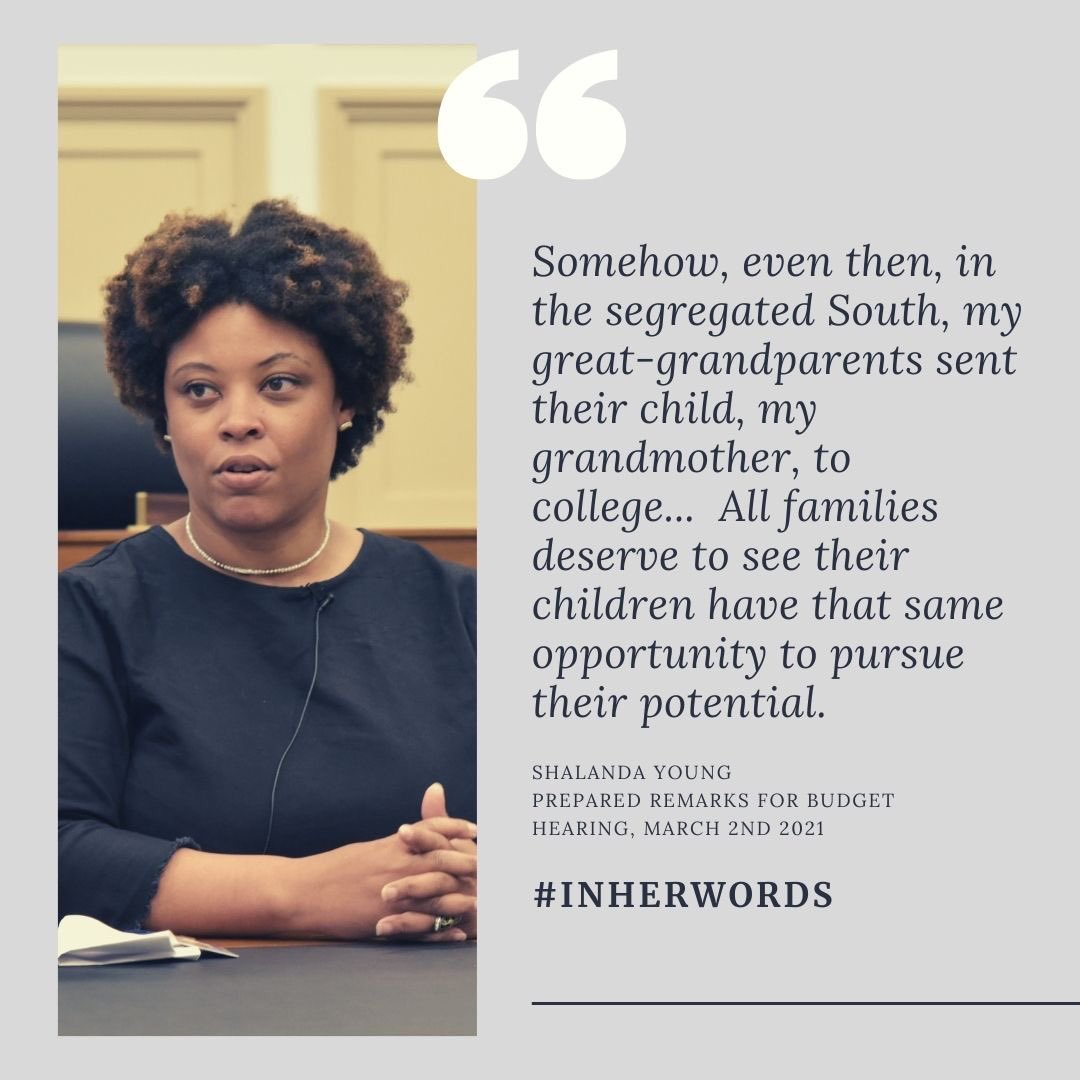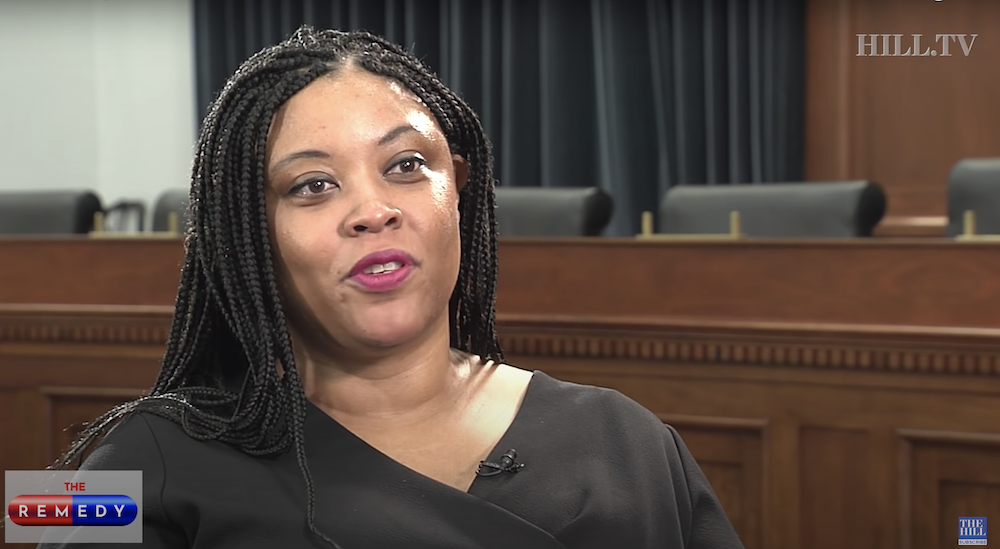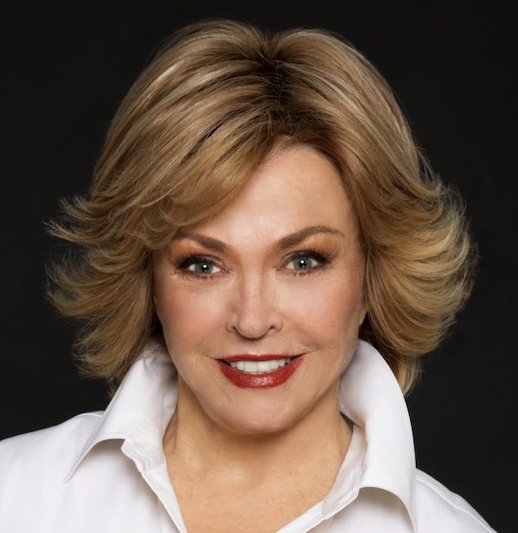
In this Table for 12 series, I’m focusing on the 12 women and women of color in Biden’s cabinet, the most ever.
Shalanda Young Is Acting Director of Office of Management and Budget
On March 22, the Senate voted 63-37 to confirm Shalanda Young as the deputy director of the Office of Management and Budget. She is currently acting director of the department.
President Biden’s original nominee for OMB director, Neera Tanden, withdrew her nomination last month after objections from senators on both sides of the aisle about negative social media posts she wrote during the Trump administration and decisions she made while director of the Center for American Progress, a progressive think tank.
Biden’s plans to fill the top spot at OMB remain on hold.

Many in Congress, on both sides of the aisle, have expressed support for making Young the permanent director, including the Congressional Black Caucus, the Democratic Women’s Caucus, Speaker Nancy Pelosi, and even Sen. Lindsey Graham (R-SC), who told her during her confirmation hearing that she would “get my support, maybe for both jobs, who knows.”
Young, 42, is a Hill veteran. Prior to becoming deputy director at OMB, she was the first Black woman to serve as the staff director for Democrats on the House Appropriations Committee. In that role, reports the Washington Post, “she oversaw $1.4 trillion in annual federal funding for programs ranging from infrastructure to defense to development. Before becoming staff director, Young held other positions within the committee for more than 14 years.”
Former House Appropriations Chair Nita M. Lowey (D-NY), the first woman to chair the powerful committee, said of Young, “You can be tough, but you have to be smart, and you have to know when to smile, and you have to know when it’s time to shake hands and say, ‘this is it.’ She has all those attributes.”
If Young is made director of the OMB, she would be the first black woman in charge of the agency.

Born on the Bayou
Young grew up in Clinton, Louisiana, a rural town with a population of around 2,000. She told senators in her opening statement that “it’s where my maternal great grandparents lived, got married, and had my grandmother in 1928. Somehow, even then, in the segregated South, my great grandparents sent their child, my grandmother, to college. I am grateful they prioritized education—a commitment that has stayed in my family for generations. All families deserve to see their children have that same opportunity to pursue their potential.”
Young attended Loyola University and went on to earn a master’s in health administration from Tulane University. In 2001, she moved to Washington to serve as a presidential management fellow at the National Institutes of Health. Six years later, she got a job at the House Appropriations Committee and rose through the ranks, becoming staff director of the committee in 2017.
Young “played critical roles on Capitol Hill in negotiating not only the dozen annual spending bills, but also a series of five pandemic relief packages that together totaled $3 trillion and represented the leading edge of a sweeping federal response to the crisis,” reports The New York Times.
When the former president shut down the government in early 2019 and refused to reopen it until his border wall was funded, Young is credited with helping Speaker Nancy Pelosi map out a “strategy that would temporarily allow parts of the government to reopen before any negotiations on homeland security could proceed.” In tense negotiations with Republican lawmakers, Young held firm until the president backed down. It was a major victory for Democrats in the House. “We reached a solution,” Sen. Leahy recalled at Young’s hearing. “That’s what Shalanda is best at. She knows how to work across the aisle to get a deal done.”
Former committee chair Nita Lowey told the Washington Post that Young was an invaluable and trusted advisor in all negotiations. Young “would be the one whispering in Lowey’s ear to negotiate for more money, guided by her instincts on the political dynamics that keep Capitol Hill churning,” noted the Post.
Young clearly enjoyed her role as trusted advisor on the Hill and had fun with it. A fan of the HBO show, Game of Thrones, Young once wore a “Hand of the Queen” brooch during one of their 2019 budget negotiation sessions and Roll Call tweeted a picture of it. The official House Appropriations Committee Twitter account retweeted the picture, and quipped, “She serves as Hand of the Chair to @AppropsDems Khaleesi @NitaLowey: first of her name, mother of mark-ups, broker of budgets, queen of the 12 appropriations bills. #GameOfThrones”
Budgets ‘Express our Values’
Young has said that she views budgets as an expression of our values as a country. She told senators at her confirmation hearing, a “former boss of mine, Chairman Obey, used to say a budget is your values. I share that belief, and firmly believe the federal budget can and should help make the promise of this country real for all families in every community.”
Despite receiving praise from Congress members from both sides of the aisle, Senator Rob Portman (R-OH) voted against Young’s confirmation largely because she supports removing the Hyde amendment from federal spending bills. The amendment prevents federal funds to go to poor women for abortion services, except in cases of danger to the life of the mother, incest and rape. Named after Rep. Henry Hyde who proposed it shortly after Roe v. Wade, it has been reauthorized every year since it became law in 1976.
In response to questions from Sen. James Lankford (R-OK) and Sen. Josh Hawley (R-MO), following her confirmation hearings, Young wrote that “eliminating the Hyde Amendment is a matter of economic and racial justice because it most significantly impacts Medicaid recipients, who are low-income and more likely to be women of color.” The new Appropriations Committee chair, Rep. Rosa DeLauro (D-CT), and President Biden also support the removal of the amendment, which Democrats have pledged will happen this year. “The Hyde Amendment is a discriminatory policy,” DeLauro says.
When asked whether the weight of her community as a Black woman has weighed heavily on her around the committee table, she told Hill TV correspondent Jamal Simmons that it definitely has and she’s comfortable with that. She recalled one debate on removing language from a 1974 law that prevents federal money from going to districts for busing to make schools more equal.

“You kind of feel the weight of that when you’re looking at your colleagues across the aisle and next to you in the eye,” she said. “You know, ‘Do you want to tell me why this is still the law of the land and why you would object to taking it out?’ and you know, you get a little more squirming with you in the room and I certainly don’t mind that because we should all look at people who look like the kids who would be affected by that policy.”
“But it is gone. We had good Republican partnership in getting rid of that [language] but there are a lot of those things around, still left to clean up. Hopefully who I am, the way I was raised and how I look will maybe speed some of that stuff along — and I can’t be afraid of that.”
Ms. Young, I wish you godspeed with that progress and extend a heartfelt feminist welcome to the table.
Onward!
-Pat

at Ms. Magazine Blog.
| In the ongoing series, Table for 12 by Pat Mitchell, we’re continuing to celebrate the unprecedented number of women nominated for Cabinet positions by President Biden. 21 of Biden’s 23 Cabinet nominees have been confirmed. Read more about US Ambassador to the UN Linda Thomas-Greenfield, Treasury Secretary Janet Yellen, Director of Intelligence Avril Haines, and more at the link above. |


